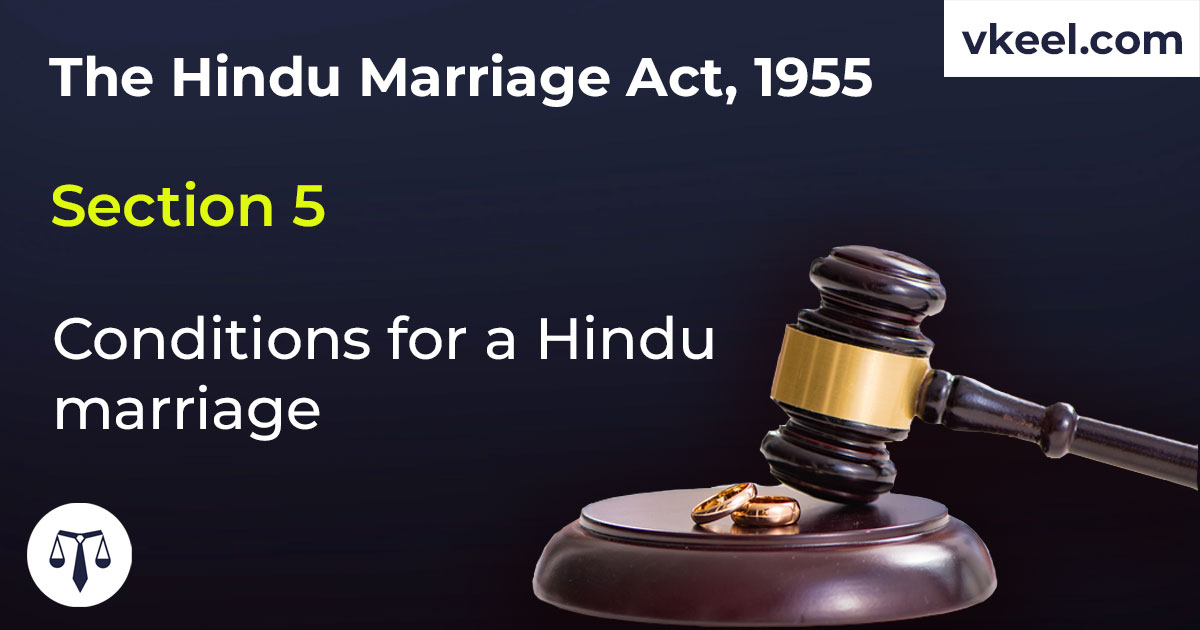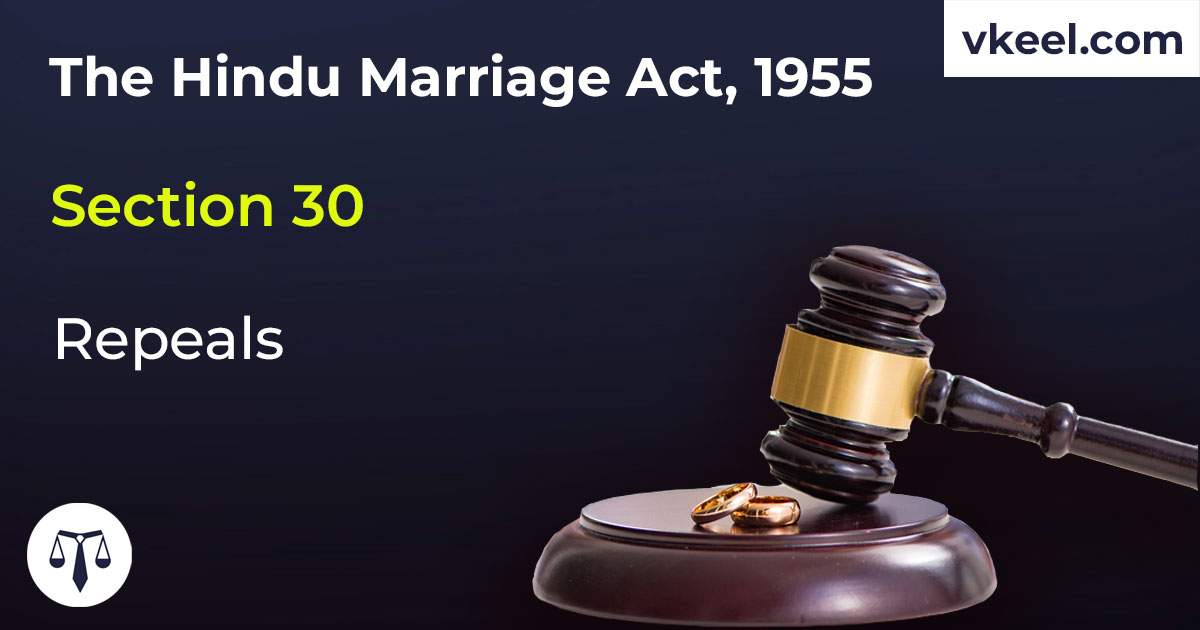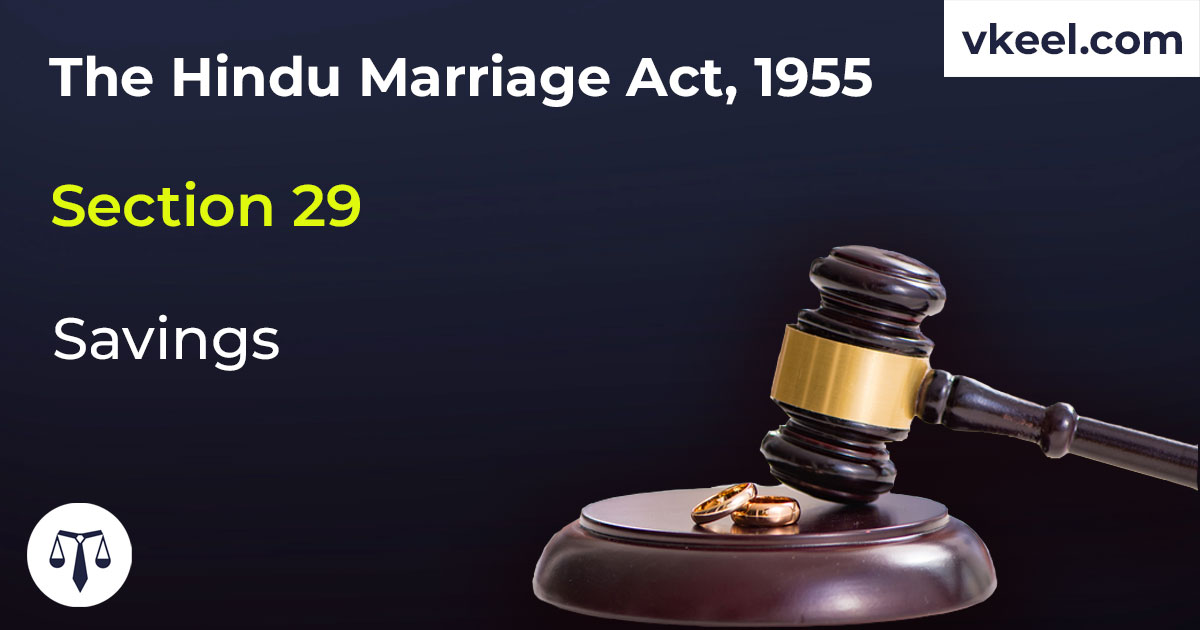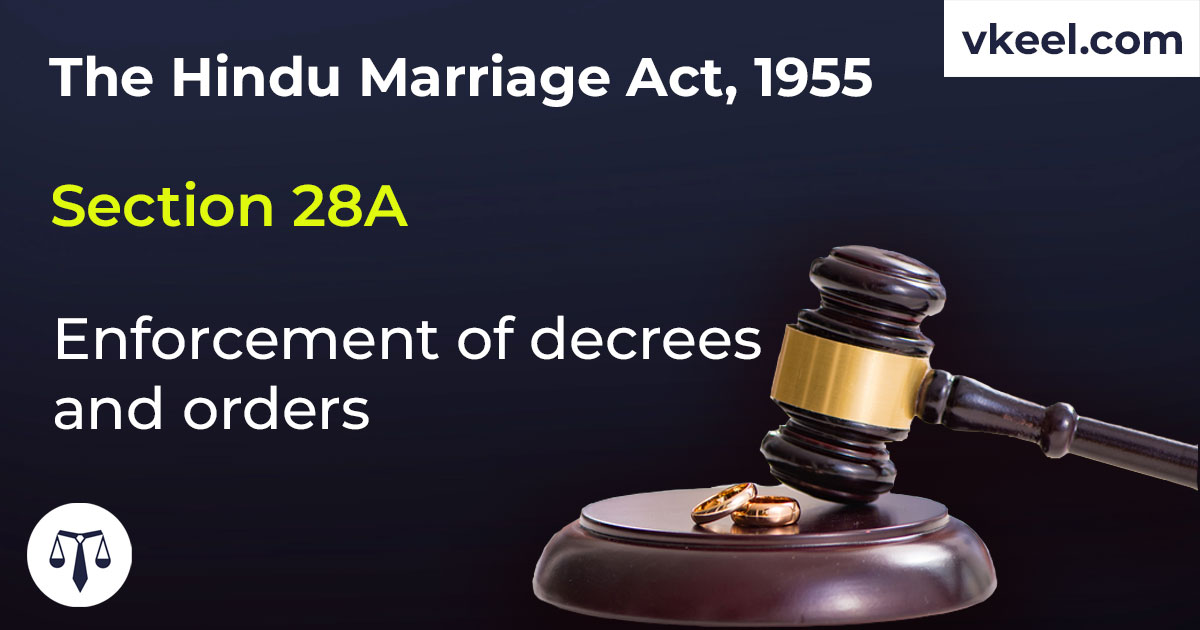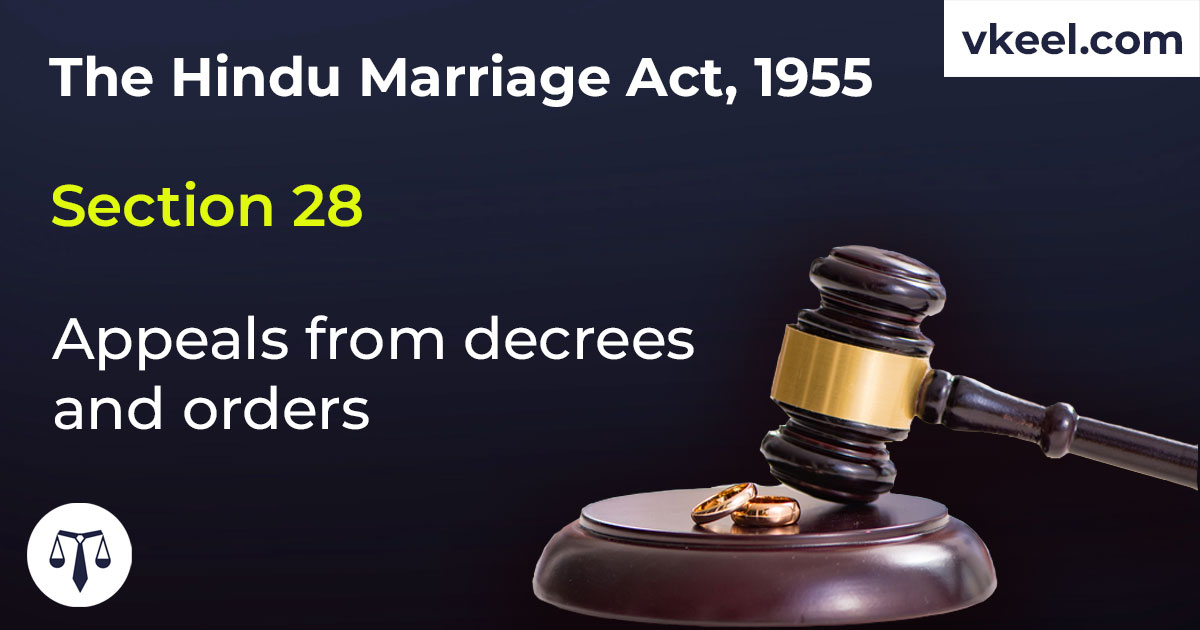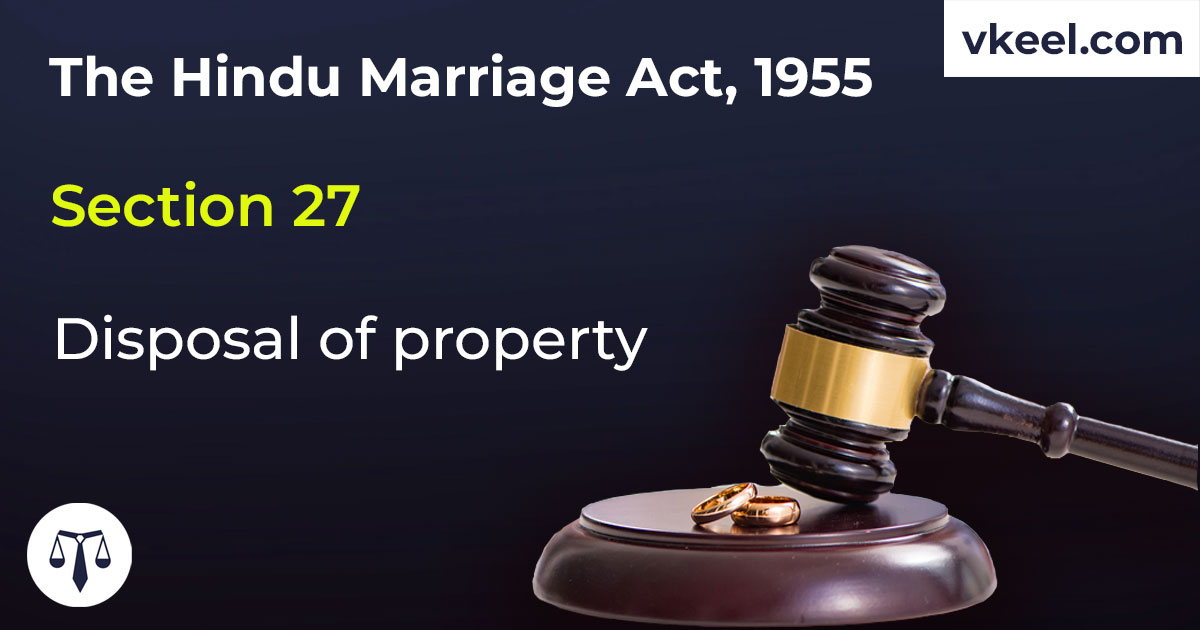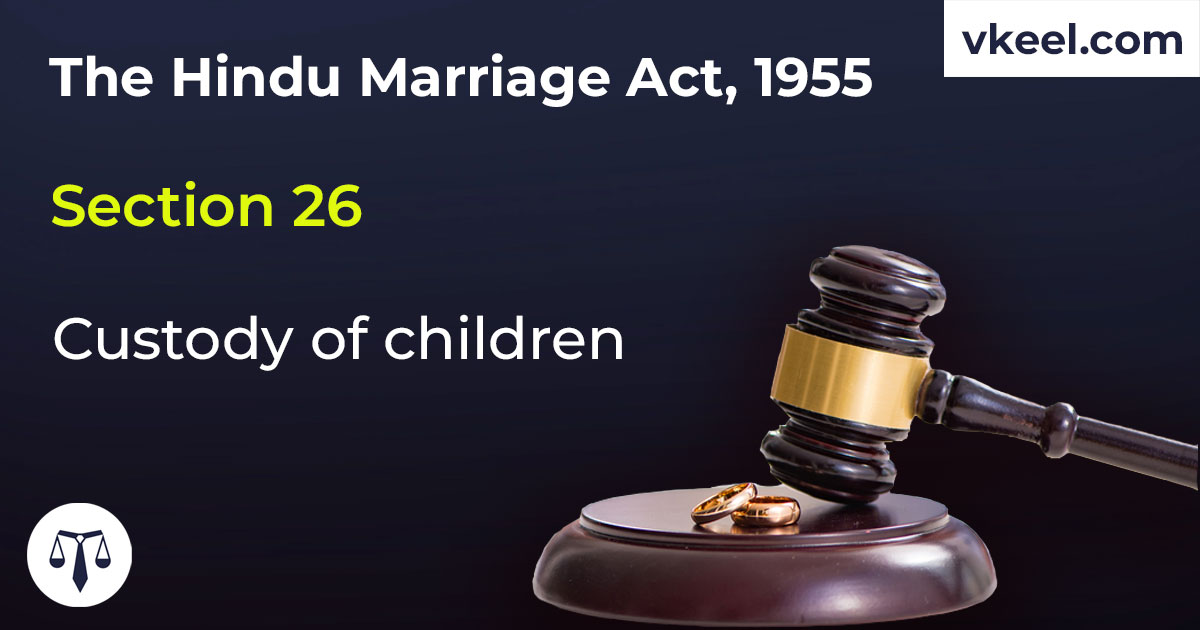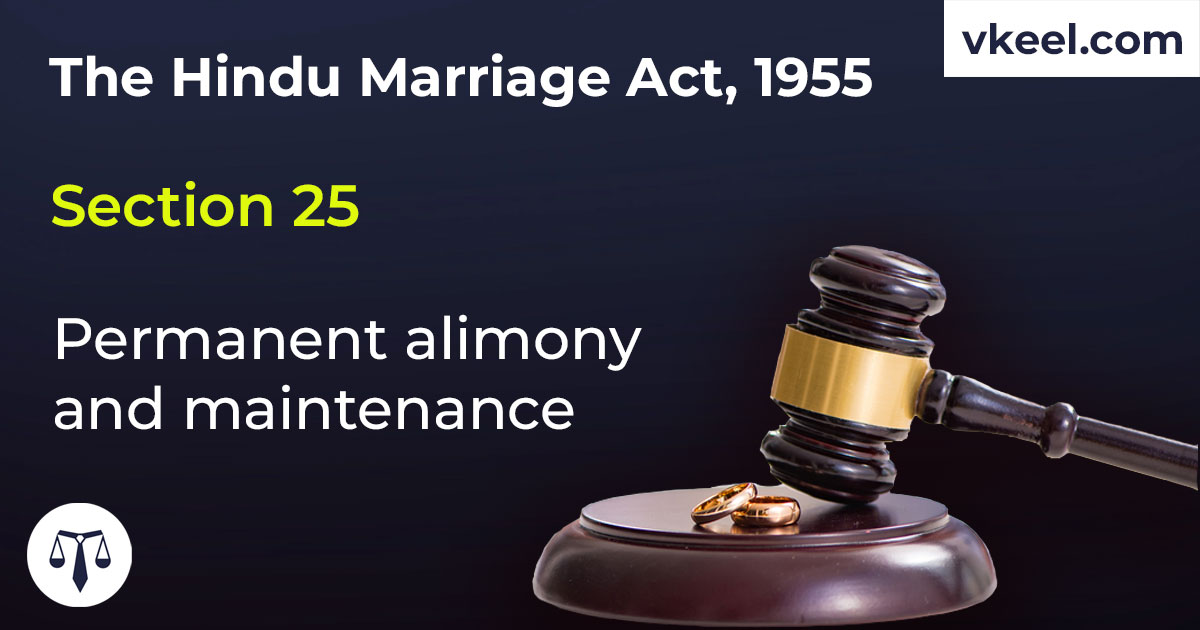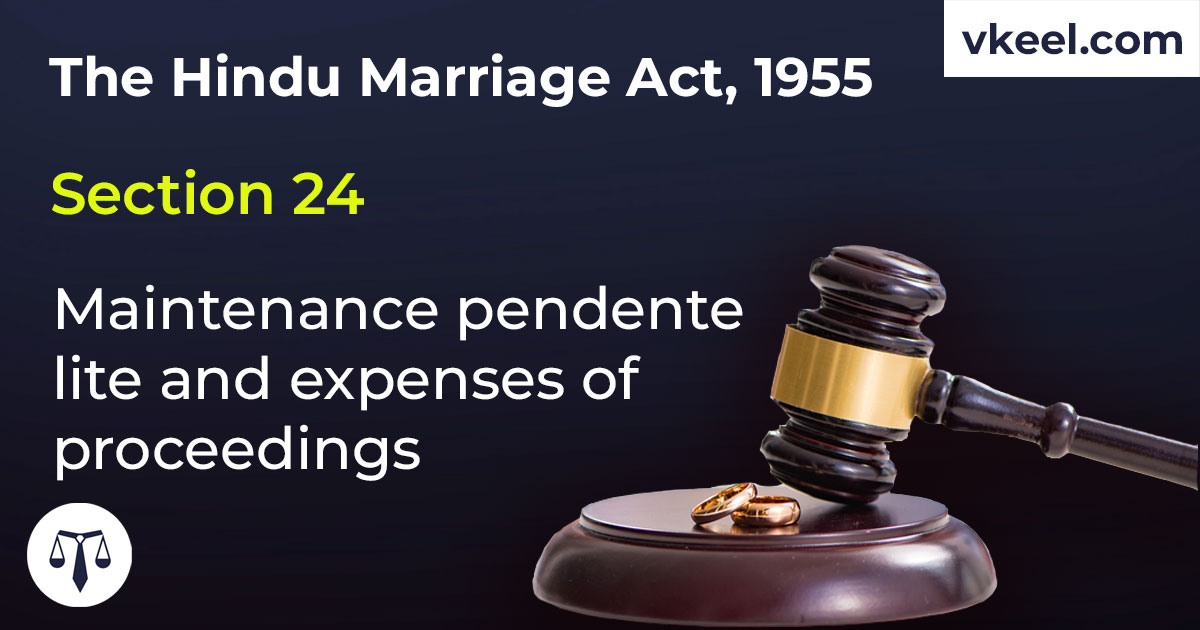Section 5 Hindu Marriage Act 1955 – Conditions for a Hindu marriage
By Vkeel Team
Description
“Section 5 Hindu Marriage Act 1955”
A marriage may be solemnized between any two Hindus, if the following conditions are fulfilled, namely:
(i) neither party has a spouse living at the time of the marriage;
1[(ii) at the time of the marriage, neither party
(a) is incapable of giving a valid consent to it in consequence of unsoundness of mind; or
(b) though capable of giving a valid consent, has been suffering from mental disorder of such a kind or to such an extent as to be unfit for marriage and the procreation of children; or
(c) has been subject to recurrent attacks of insanity 2 ***];
(iii) the bridegroom has completed the age of 3[twenty-one years] and the bride, the age of 4[eighteen years] at the time of the marriage;
(iv) the parties are not within the degrees of prohibited relationship unless the custom or usage governing each of them permits of a marriage between the two;
(v) the parties are not sapindas of each other, unless the custom or usage governing each of them permits of a marriage between the two;
Section 5 Hindu Marriage Act outlines the conditions for a valid Hindu marriage
The Hindu Marriage Act of 1955 is an important piece of legislation in India that governs the marriage of Hindus. Section 5 Hindu Marriage Act 1955 outlines the conditions for a valid Hindu marriage. These conditions are as follows:
1. Both parties must be Hindus, and must not be related to each other within the prohibited degrees of relationship.
2. Both parties must be of sound mind and capable of giving valid consent.
3. Both parties must have attained the age of majority, which is 21 years for a male and 18 years for a female.
4. Neither party should have a living spouse at the time of the marriage.
5. The parties must give their free and valid consent to the marriage.
6. The parties must not be within the degrees of prohibited relationship as prescribed in the Act.
7. The parties must not be sapindas of each other, unless the custom or usage governing each of them permits of a marriage between the two.
The Hindu Marriage Act of 1955 is an important piece of legislation that ensures the validity of Hindu marriages in India. It is important to note that all of the conditions outlined in Section 5 Hindu Marriage Act 1955 must be met in order for a Hindu marriage to be considered valid.
1. Subs. by Act 68 of 1976, s. 2, for clause (ii) (w.e.f. 27-5-1976).
2. The words or epilepsy omitted by Act 39 of 1999, s. 2 (w.e.f. 29-12-1999).
3. Subs. by Act 2 of 1978, s. 6 and Schedule for elighteen years (w.e.f. 1-10-1978).
4. Subs. by s. 6 and Schedule, ibid., for fifteen years (w.e.f. 1-10-1978).
5. Clause (vi) omitted by s. 6 and Schedule, ibid. (w.e.f. 1-10-1978).
Description Source: indiacode
Disclaimer:
The information provided in the article is for general informational purposes only, and is not intended to constitute legal advice or to be relied upon as a substitute for legal advice. Furthermore, any information contained in the article is not guaranteed to be current, complete or accurate. If you require legal advice or representation, you should contact an attorney or law firm directly. We are not responsible for any damages resulting from any reliance on the content of this website.

